Abstract
Considerable debate has occurred among behavior analysts about the value of cognitive language for labels or descriptions of phenomena in the analysis of behavior. That value is difficult to assess, however, until a clearer understanding of the definitions of those terms is obtained. To begin that process, this article demonstrates through a series of examples what children mean when they use typical cognitive expressions. One conclusion possible from the results of such an analysis is that cognitive terms describe nothing more than behavior in context, a very behavioral idea. Cognitive expressions may be more suitable to a behavioral analysis than to one derived from the current computer metaphor of cognitive science. The usefulness of these more accurately defined cognitive expressions for the scientific language of behavior analysis is discussed.
Full text
PDF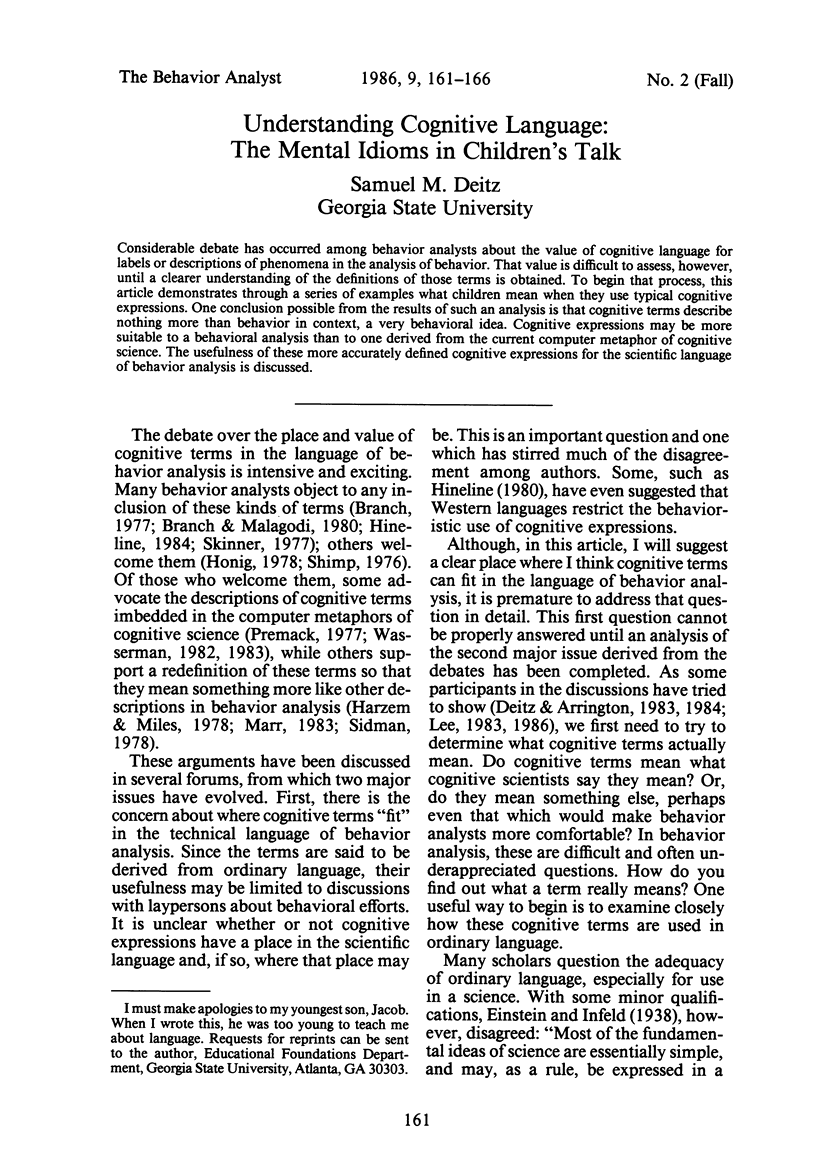
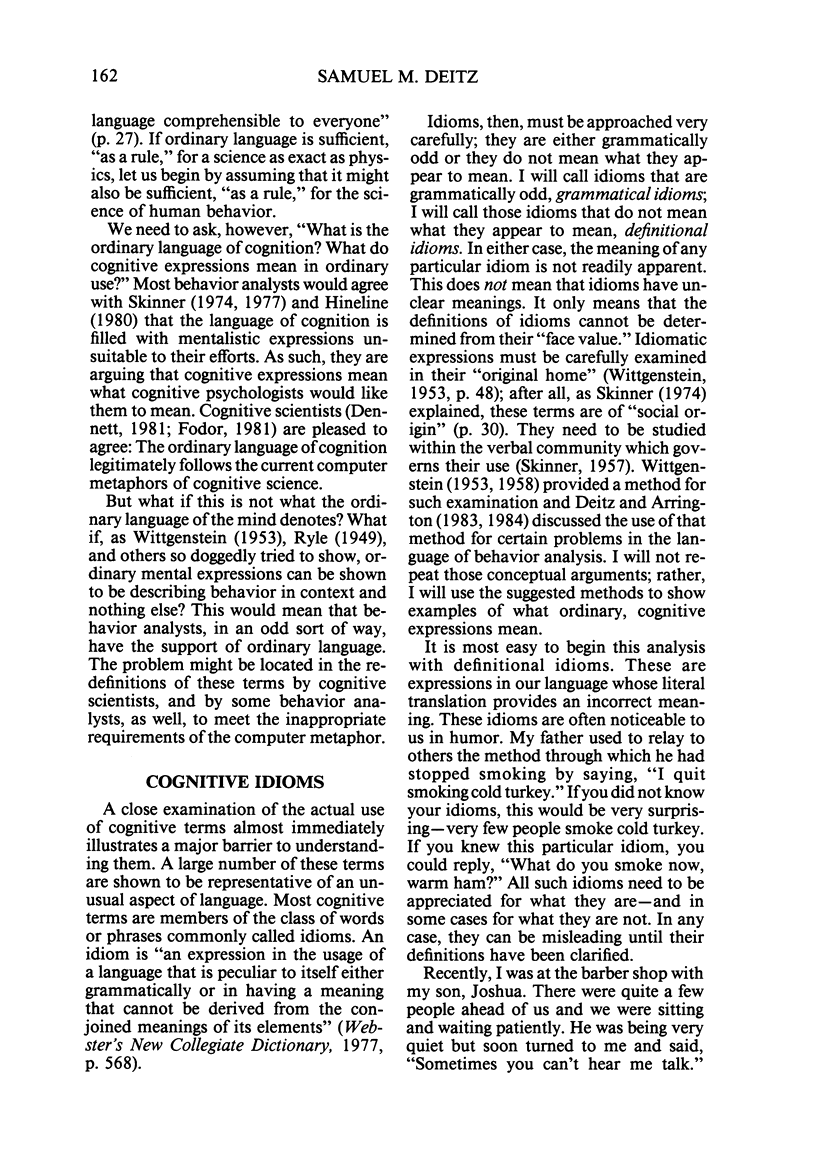
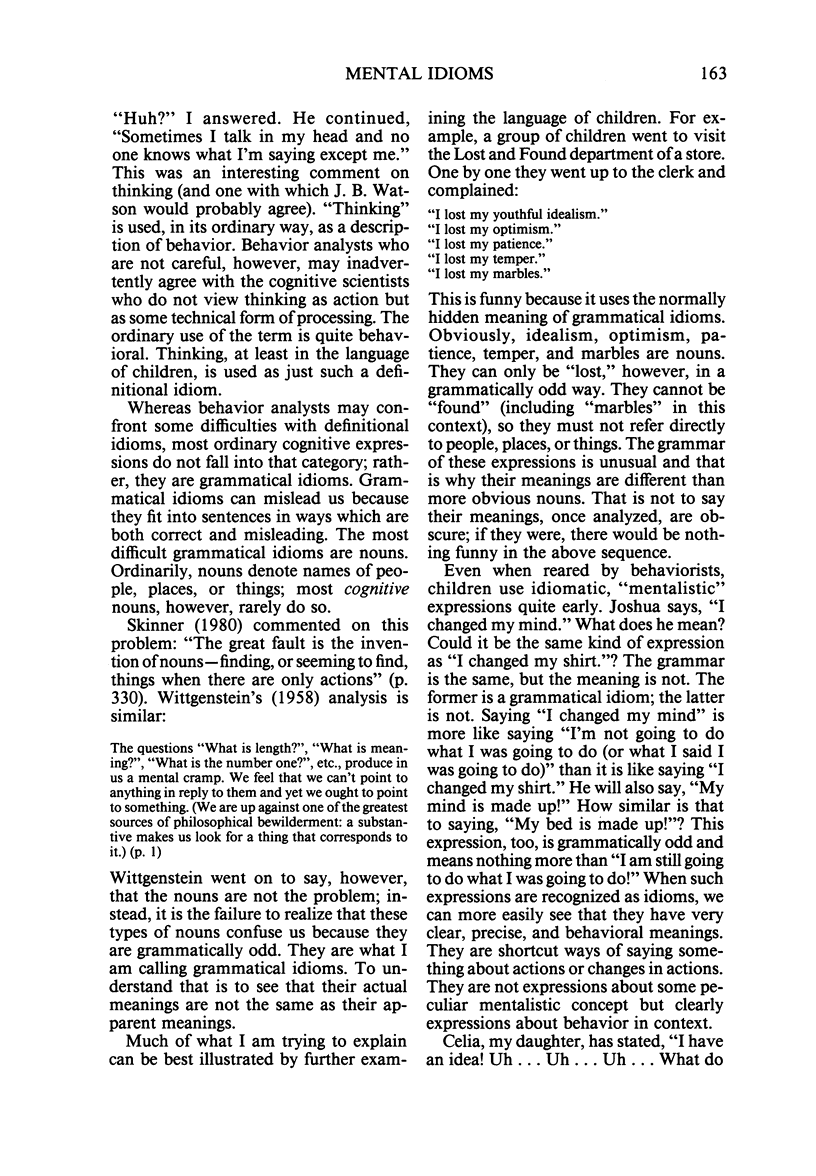
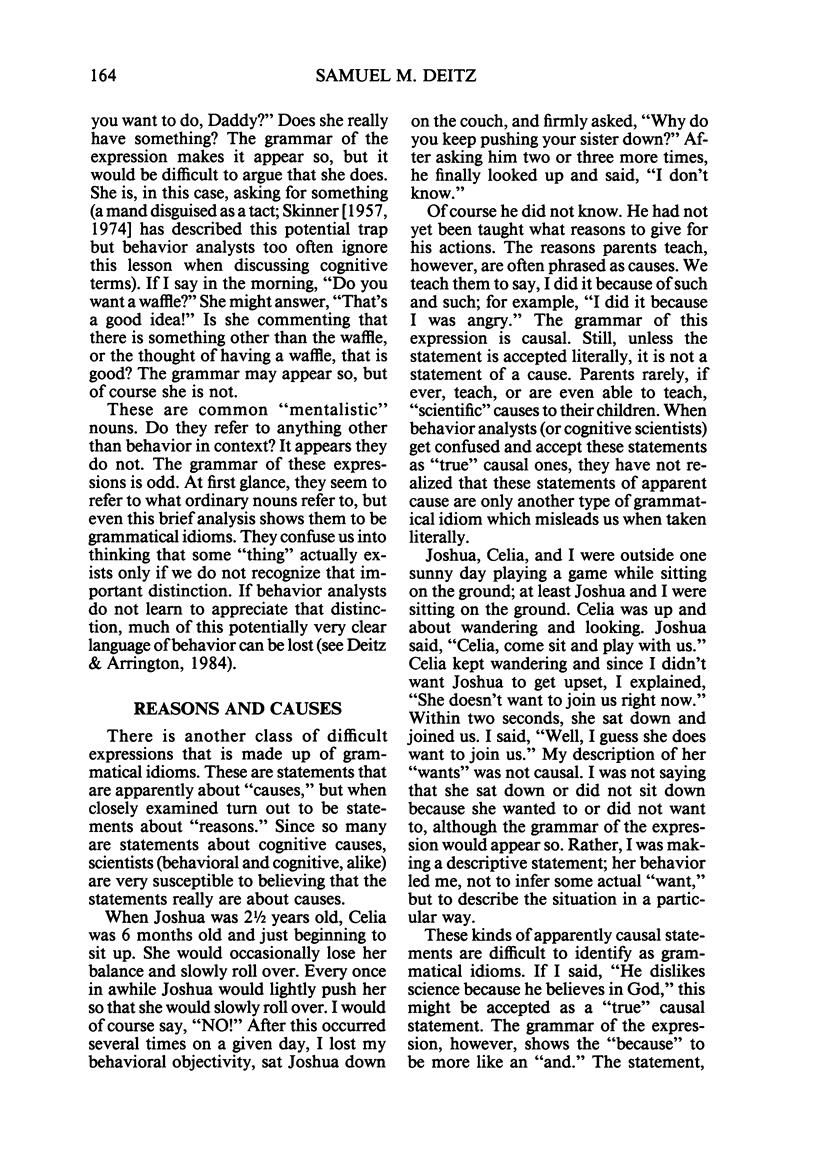

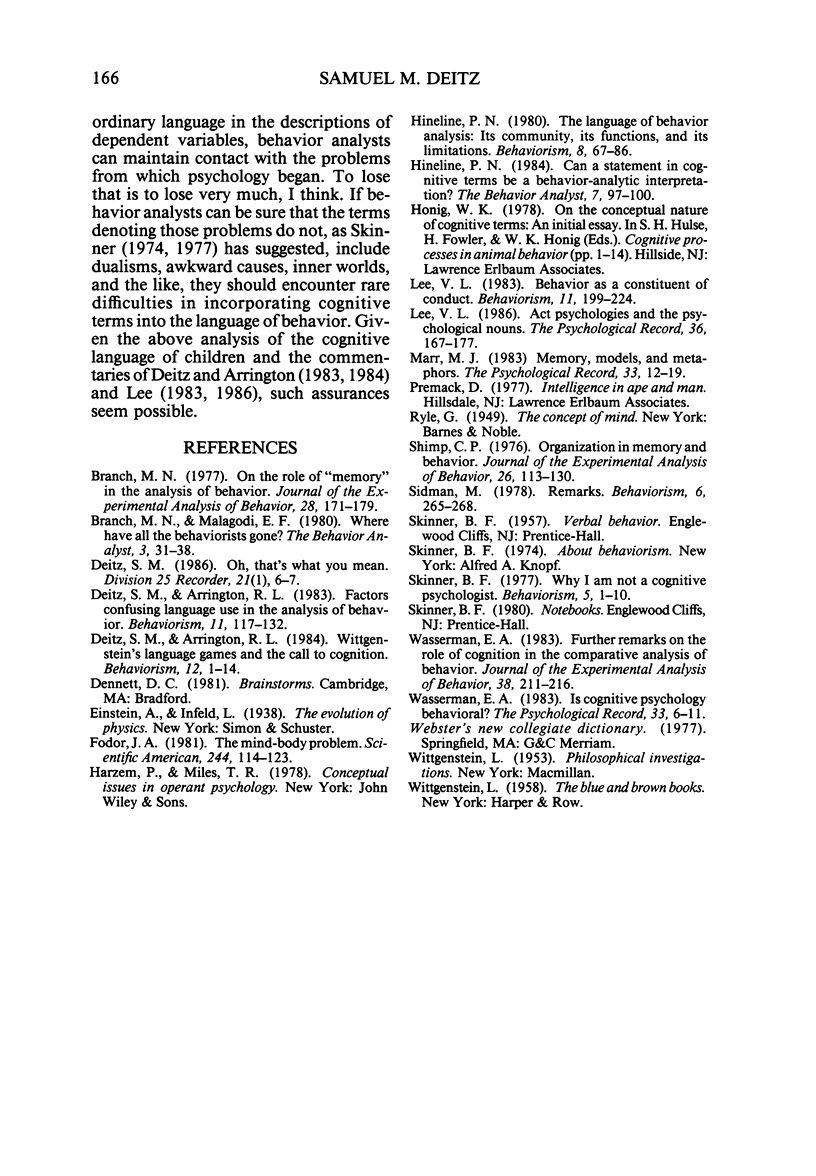
Selected References
These references are in PubMed. This may not be the complete list of references from this article.
- Branch M. N., Malagodi E. F. Where have all the behaviorists gone? Behav Anal. 1980 Spring;3(1):31–38. doi: 10.1007/BF03392376. [DOI] [PMC free article] [PubMed] [Google Scholar]
- Branch M. N. On the role of "memory" in the analysis of behavior. J Exp Anal Behav. 1977 Sep;28(2):171–179. doi: 10.1901/jeab.1977.28-171. [DOI] [PMC free article] [PubMed] [Google Scholar]
- Hineline P. N. Can a statement in cognitive terms be a behavior-analytic interpretation? Behav Anal. 1984 Fall;7(2):97–100. doi: 10.1007/BF03391893. [DOI] [PMC free article] [PubMed] [Google Scholar]
- Shimp C. P. Organization in memory and behavior. J Exp Anal Behav. 1976 Jul;26(1):113–130. doi: 10.1901/jeab.1976.26-113. [DOI] [PMC free article] [PubMed] [Google Scholar]
- Wasserman E. A. Further remarks on the role of cognition in the comparative analysis of behavior. J Exp Anal Behav. 1982 Sep;38(2):211–216. doi: 10.1901/jeab.1982.38-211. [DOI] [PMC free article] [PubMed] [Google Scholar]



